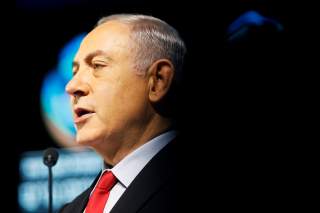Israel's Place in the Middle East Mayhem
The image of a unified Israeli-Saudi front has significant deterrence value against Iran but should also be used within the context of solving the GCC crisis.
The compatibility of Israeli and Gulf/Saudi interests is focused, perhaps temporary and is meant to deal primarily with the growing threat posed by Iran and its proxies in the region. For Riyadh and Abu Dhabi, as for Jerusalem, the dividends it is enjoying from this quiet cooperation with Israel may be sufficient. It is highly doubtful that the Gulf States will be willing to take further risks by becoming more open over the extent of the ties already established with Israel for which, as far as they concerned, they have yet to receive an appropriate return.
As such, current Israel-Saudi ties, and more broadly, Israeli ties with other Gulf states, have yet to realize their full potential. However, what has been achieved to date should not be taken for granted, and efforts should be made to build on the cooperation that has developed, subject to the existing limitations. Indeed, the image of a unified Israeli-Saudi front has significant deterrence value against Iran but should also be used within the context of solving the GCC crisis.
Yoel Guzansky is a senior researcher at the Institute for National Security Studies, Tel Aviv University. Sigurd Neubauer is a Middle East analyst based in Washington. Alex Vatanka is a Senior Fellow at Middle East Institute.
Image: Reuters

